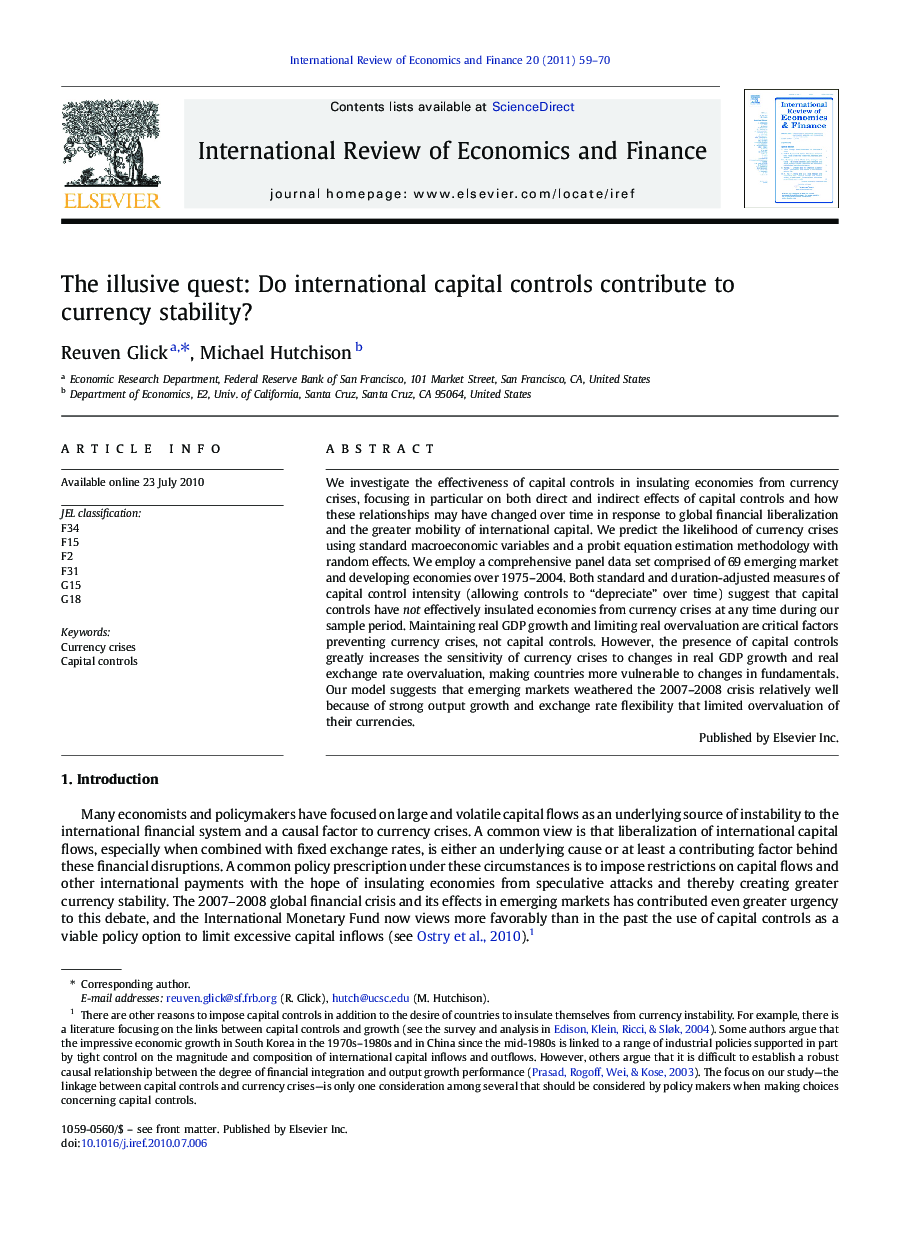| Article ID | Journal | Published Year | Pages | File Type |
|---|---|---|---|---|
| 5083975 | International Review of Economics & Finance | 2011 | 12 Pages |
Abstract
We investigate the effectiveness of capital controls in insulating economies from currency crises, focusing in particular on both direct and indirect effects of capital controls and how these relationships may have changed over time in response to global financial liberalization and the greater mobility of international capital. We predict the likelihood of currency crises using standard macroeconomic variables and a probit equation estimation methodology with random effects. We employ a comprehensive panel data set comprised of 69 emerging market and developing economies over 1975-2004. Both standard and duration-adjusted measures of capital control intensity (allowing controls to “depreciate” over time) suggest that capital controls have not effectively insulated economies from currency crises at any time during our sample period. Maintaining real GDP growth and limiting real overvaluation are critical factors preventing currency crises, not capital controls. However, the presence of capital controls greatly increases the sensitivity of currency crises to changes in real GDP growth and real exchange rate overvaluation, making countries more vulnerable to changes in fundamentals. Our model suggests that emerging markets weathered the 2007-2008 crisis relatively well because of strong output growth and exchange rate flexibility that limited overvaluation of their currencies.
Related Topics
Social Sciences and Humanities
Economics, Econometrics and Finance
Economics and Econometrics
Authors
Reuven Glick, Michael Hutchison,
